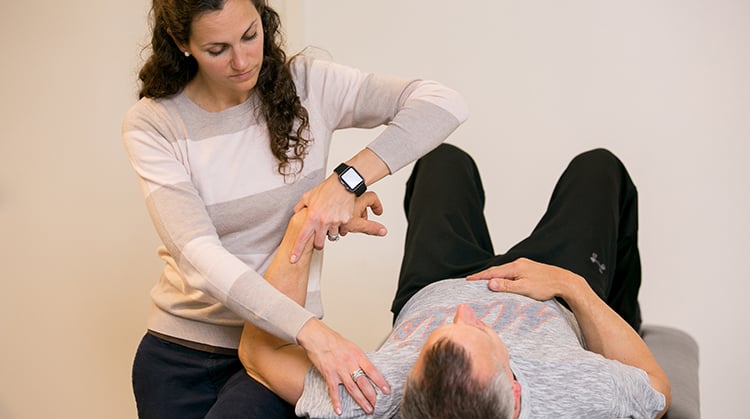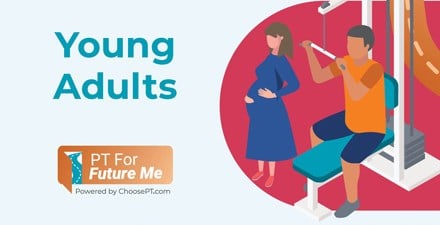
1. Knowledge is power
There is a growing body of evidence suggesting that understanding how pain works is a key strategy in managing it. Simply knowing the basics of how our brain and nerves work and their role in pain, can decrease your chance of developing chronic symptoms. Learn more.
2. Keep moving (gradually and steadily)
Living an active, healthy lifestyle not only improves our general well-being and health, but can also reduce our chances of developing chronic pain. Our body was built to move, and we need to understand that not all aches or soreness is cause for concern. Learn more.
3. Spend time with a physical therapist
If you experience an injury, or develop the onset of pain, seeing a physical therapist early on can help address and manage your symptoms. Physical therapists use the latest evidence to design treatment plans for each person's individual needs, challenges, and goals to improve mobility, manage pain and other chronic conditions, recover from injury, and prevent future injury and chronic disease. Accessing care early by a physical therapist reduces your chances of developing chronic symptoms. Learn more.
4. Focus less on the image
While most of us want a diagnostic image (ie, x-ray, MRI) to tell us "why we hurt," images actually give us little information about what's causing pain. A study performed on individuals aged 60 years or older, who had no symptoms of low back pain, found that more than 90% had a degenerated or bulging disc, 36% had a herniated disc, and 21% had spinal stenosis. What shows up on an image may or may not be related to your symptoms. Once imaging has cleared you of a serious condition, your physical therapist will help optimize your quality of life with a combination of prescribed exercise, hands-on care, and education. .
5. Addressing depression and anxiety helps
Your chances of developing chronic pain may be higher if you also are experiencing depression and anxiety. A recent study in the Journal of Pain showed that depression, as well as some of our thoughts about pain prior to total knee replacement, was related to long-term pain following the procedure. Talk to your medical provider about any mental health concerns during your treatment, following an injury or surgery.
Physical therapists are movement experts who improve quality of life through hands-on care, patient education, and prescribed movement. You can contact a physical therapist directly for an evaluation. To locate a physical therapist in your area, visit Find a PT.
The American Physical Therapy Association launched a national campaign to raise awareness about the risks of opioids and the safe alternative of physical therapy for long-term pain management. Learn more about safe pain management.


